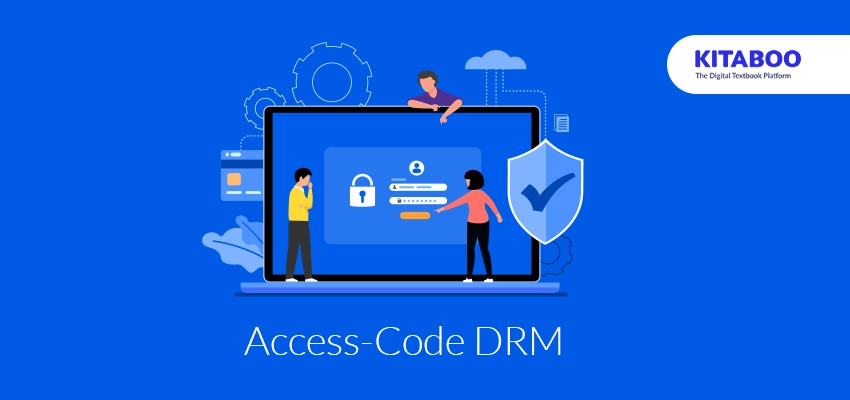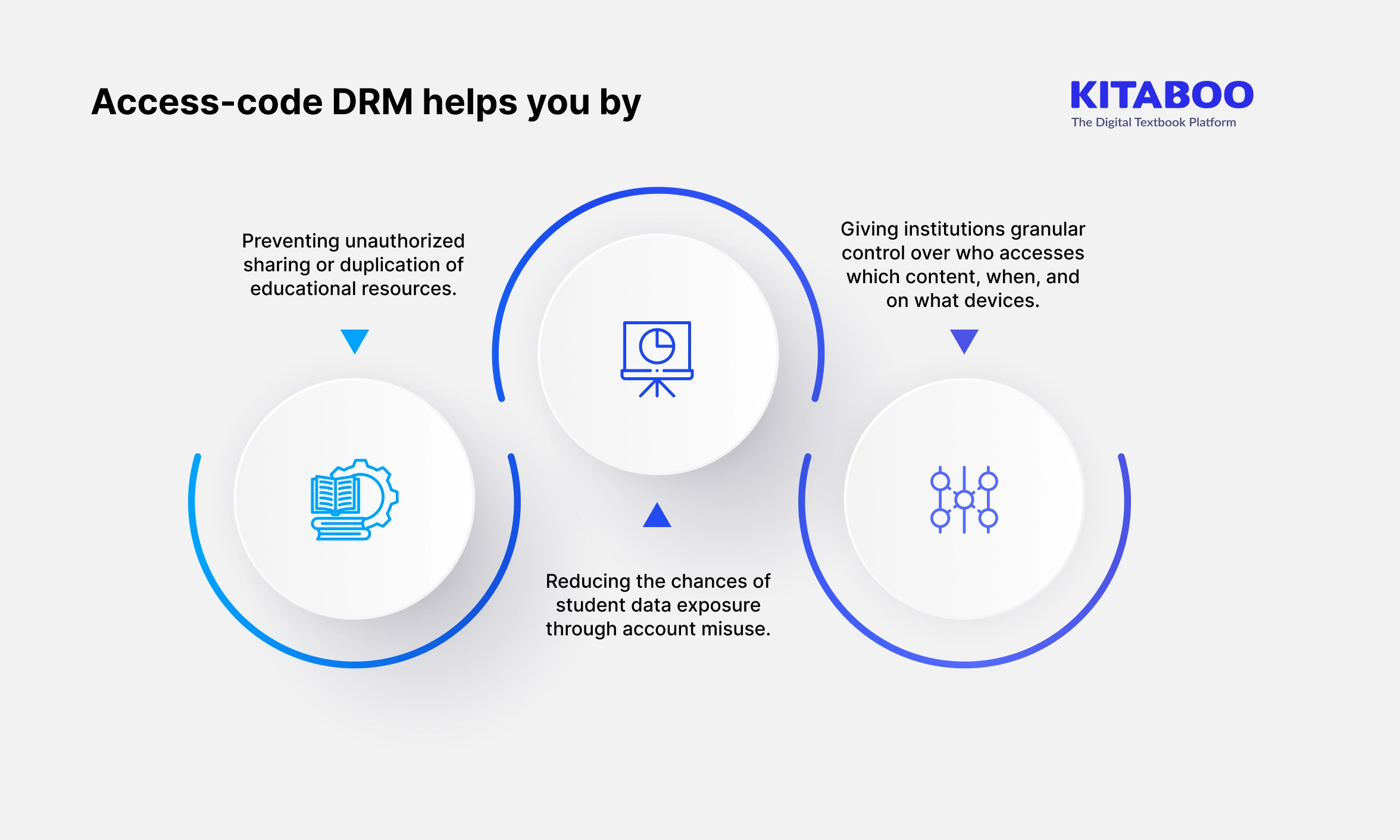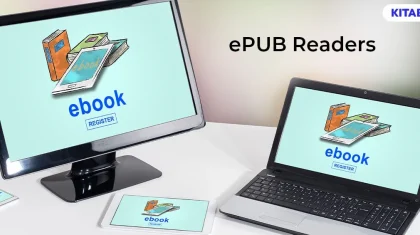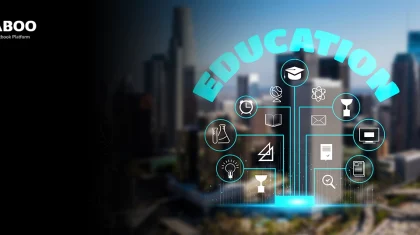
Protecting Student Data with Access-Code DRM: Privacy-First EdTech in Action
Summarize this blog with your favorite AI:
Protecting Student Data with Access-Code DRM - TL;DR
As EdTech adoption accelerates, student data security is facing growing threats. With sensitive information now stored and accessed online, ensuring controlled access is critical for building a privacy-first learning environment.
Access-code DRM helps institutions prevent unauthorized content sharing, reduce data misuse, and comply with strict privacy regulations. It’s a key enabler of secure, compliant digital learning.
How KITABOO powers privacy-first EdTech with access-code DRM:
- Assigns secure, role-based access codes to protect student identities and sensitive content.
- Maintains content protection even in offline environments with access-bound controls.
- Tracks real-time content engagement without collecting unnecessary personal data.
- Enables institutions to manage, revoke, and monitor access with full control.
- Strengthens trust in state-level adoptions by aligning with compliance expectations.
KITABOO ensures that data protection and digital innovation go hand in hand. This makes it a reliable choice for future-ready, privacy-focused education.
While the benefits of online learning are immense, you can’t ignore the data privacy risk that comes with it. With the surge in EdTech, learning has become more engaging and interactive. Today, students can experience the power of digital learning as it has become extremely accessible.
There has been a significant rise in students’ performance as institutions are embracing modern EdTech. However, the flip side of the coin showcases an equally significant rise in data breaches and security risks.
Right from learning content to student data and test results, everything is stored and accessed online. Ensuring secure storage and authorized access becomes crucial to safeguard student data.
To create a privacy-first EdTech ecosystem, publishers and institutions are keen on leveraging publishing tools like KITABOO that put data security first.
KITABOO delivers content responsibly, respecting and protecting learners’ privacy through its robust access-code DRM mechanism.
What exactly is it, and how does KITABOO support privacy-first EdTech?
Keep reading to know the answers.
Table of Contents
II. How Important is Access-Code DRM in Privacy-First EdTech?
III. How Does KITABOO Power Privacy-First EdTech with Access-Code DRM?
- Protects Student Identities and Sensitive Content
- Keeps Content Secure, Even Offline
- Offers Real-Time Analytics Without Compromising Privacy
- Builds Confidence in State-Level Adoptions
IV. Conclusion
What Is Access-Code DRM?
Access-code Digital Rights Management (DRM) is a secure mechanism to ensure data protection and security. It’s a simple but powerful way to protect student data.
Authorized users are given unique codes that grant them access to learning materials. These codes ensure that they access the data that only they are supposed to view. This safeguards student data from unauthorized personnel and misuse.
By protecting user data, access-code DRM supports the core of every privacy-first EdTech ecosystem.
How Important is Access-Code DRM in Privacy-First EdTech?
A report from The Center for Internet Security highlights 82% of K12 institutions face cyber breaches, highlighting 14,000 security events and 9,300 cyber incidents that tend to surge during high-stakes periods like exams.
The shift toward privacy-first EdTech is driven by more than just evolving policies. The emphasis on safeguarding student data privacy is more than ever before. K12 institutions are expected to comply with the data privacy laws and regulations. The publishers are supporting this quest with smart use of responsible technologies like access-code DRM.
As the educational world is prioritizing privacy-first EdTech, data protection mechanisms like access-code DRM play a crucial role. You can easily meet district-level compliance standards and establish the much-needed trust among institutions.
How Does KITABOO Power Privacy-First EdTech with Access-Code DRM?
To fight the data breach risks, your content must be safeguarded by a strong platform that keeps data security at its core. KITABOO is designed for publishers and institutions that put data privacy and security first. Here’s how KITABOO makes privacy-first EdTech possible:
Protects Student Identities and Sensitive Content
KITABOO ensures that only verified users can access content by using secure, time-bound access codes. Each user gets a unique code tied to their role (student, teacher, or admin) ensuring that only the right people view the right content.
This role-based system prevents any accidental exposure of personal data or learning history. Especially in K12 environments where minors are involved, this level of control is critical for maintaining a secure and privacy-aligned ecosystem.
Keeps Content Secure, Even Offline
In many school districts, especially rural or low-income ones, internet access can be unreliable. KITABOO solves this by offering secure offline access without compromising privacy.
Even when a student downloads content, the access-code DRM continues to protect the file. It ensures that usage remains tied to the assigned user, device, and access window. Once the offline session ends or the access period expires, the content becomes unavailable.
This makes KITABOO a truly privacy-first EdTech solution for districts that need flexibility without losing control even in offline environments.
Offers Real-Time Analytics Without Compromising Privacy
Understanding how content is used is key to improving learning outcomes and refining digital offerings. But many analytics tools collect user data in ways that raise privacy concerns.
KITABOO strikes the right balance. Its real-time analytics track engagement and usage trends without collecting unnecessary personal data. This aligns with data privacy regulations that are especially important in compliance-heavy districts.
This gives you a system that supports both accountability and privacy, without putting institutions or publishers in a position where they have to choose between the two.
Builds Confidence in State-Level Adoptions
When states evaluate educational materials for textbook adoption, data privacy and security often top the checklist. KITABOO’s access-code DRM helps publishers meet these criteria confidently.
With its secure distribution mechanism, you can stop worrying about unauthorized access and breaches. You can easily control which users can access which content, and also track, revoke and update the access rights without any hassle.
This will help you reduce the risk of data leaks and create a transparent environment.
By prioritizing controlled access, KITABOO strengthens a publisher’s position in competitive state-level bidding processes, where trust is often the deciding factor.
When you back your content with the trust and security of user data protection, you position yourself as a reliable publishing partner and improve your chances of winning high-value deals.
Conclusion
Publishers and institutions that don’t prioritize students’ data security are inviting breaches and cyberattacks. As digital learning is taking the world by storm, the responsibility to provide a secure and safe learning environment is also growing fast.
Student data is always at risk in the digital learning landscape. It becomes the responsibility of publishers and institutions to leverage robust publishing platforms to secure this data. KITABOO is designed to empower safe and secure privacy-first EdTech.
With data security at its core, this platform helps you create an environment where students enjoy interactive and immersive learning without worrying about anything else.
The future of digital learning is safe, secure, and reliable. KITABOO helps you get there faster. Book an exclusive demo to start your journey towards privacy-first EdTech.
FAQs
Access-code DRM is a security feature that gives each user a unique access code. This ensures only verified students or educators can open and use specific digital learning materials.
Digital Rights Management (DRM) is a technology used to control how digital content is accessed and shared. It protects against unauthorized distribution, copying, or misuse of sensitive data.
It links content access to individual users, roles, and devices using secure codes. This prevents unauthorized access and keeps student data protected from breaches or leaks.
Discover how a mobile-first training platform can help your organization.
KITABOO is a cloud-based platform to create, deliver & track mobile-first interactive training content.




